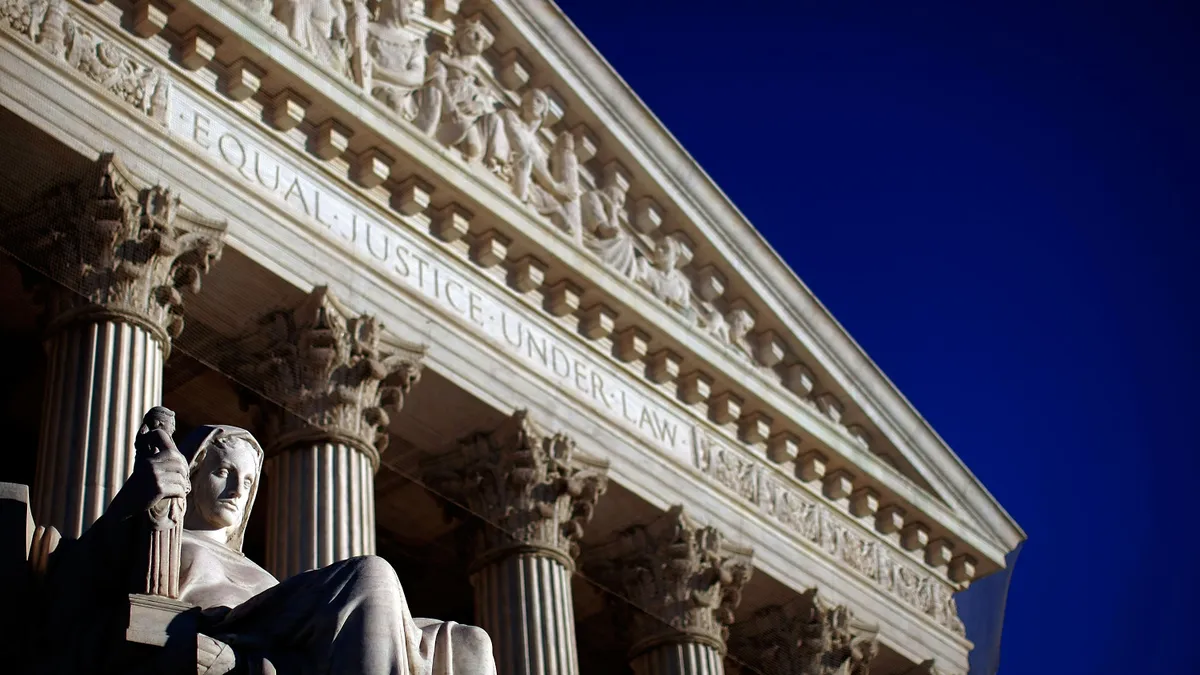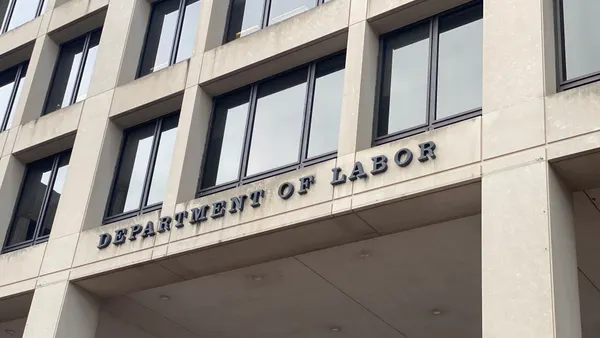Dive Brief:
- The Federal Arbitration Act does not authorize federal courts to create arbitration-specific procedural rules, as the U.S. Court of Appeals for the 8th Circuit did when it determined that an Iowa Taco Bell franchisee did not waive its right to arbitrate an employee’s wage and hour claims, the U.S. Supreme Court held Monday (Morgan v. Sundance, Inc., No. 21–328 (May 23, 2022)).
- In its reversal of a lower court’s decision, the 8th Circuit held last year that the employee failed to show that Sundance, Inc. prejudiced her by acting inconsistently in invoking its arbitration agreement with her — in this case, waiting months to move to compel arbitration. The court’s analysis agreed with a framework followed by eight other circuit courts, but it split with two other circuits that have rejected an arbitration-specific waiver rule.
- Writing for a unanimous Supreme Court, Associate Justice Elena Kagan said that the FAA’s “policy favoring arbitration,” upon which some courts have relied when setting arbitration-specific waiver rules, did not permit federal courts to invent such rules. The high court’s ruling vacates the 8th Circuit’s decision and the case has been remanded for further proceedings.
Dive Insight:
The dispute in Sundance stemmed from a wage and hour claim in which an employee alleged, among other things, that the employer capped paychecks at 80 hours per two-week period, regardless of hours worked. The employer moved to compel arbitration, giving rise to the question the 8th Circuit addressed.
The high court’s decision “decisively answered” the question of whether a party asserting a waiver of the right to arbitrate must show that it was prejudiced by another party’s inconsistent conduct, Richard Silberberg, partner at Dorsey & Whitney, said in a statement emailed to HR Dive.
"The Court has now made it abundantly clear that a party may not rely upon an absence of demonstrable prejudice to the other side to justify deferring a contractual right to arbitrate a dispute by engaging in litigation in court and then switching to arbitration when it deems an arbitral forum to be strategically advantageous,” Silberberg said.
But Kagan also made clear that the court only answered some of the questions raised in Sundance.
“Stripped of its prejudice requirement, the Eighth Circuit’s current waiver inquiry would focus on Sundance’s conduct. Did Sundance, as the rest of the Eighth Circuit’s test asks, knowingly relinquish the right to arbitrate by acting inconsistently with that right?” she wrote. “On remand, the Court of Appeals may resolve that question, or (as indicated above) determine that a different procedural framework (such as forfeiture) is appropriate.”
The decision is the first of three arbitration-related cases to be decided during the court’s current term. Observers are still waiting on SCOTUS to issue rulings in the cases of Viking River Cruises, Inc. v. Moriana and Southwest Airlines Co. v. Saxon.












